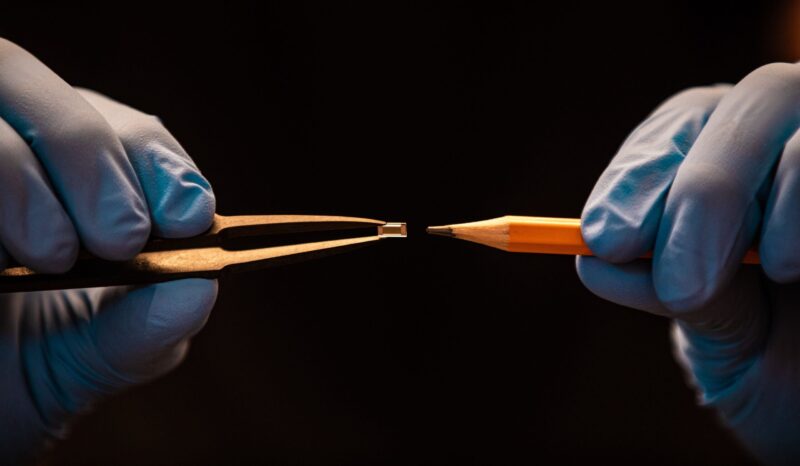Welcome to the latest installment of the Cannabis Clock — our countdown to the federal legalization of cannabis. When the Cannabis Clock reaches midnight, we will have achieved federal legalization. The last time we checked in, it was 11:53 p.m. Now, let’s examine the latest developments at the state and federal levels. This will inform the new clock time … and our new countdown.
Federal Updates
Federally speaking, quite a few things have happened since we last checked in. In Oct. 2022, the Biden administration announced it would pardon a group of offenders arrested for simple possession of cannabis.
Sounds good, right? Well, yes. But these pardons were for people charged with simple possession at the federal level — only about 6,500 people. While meaningful, one could argue the true motive behind the announcement, which was just ahead of November’s midterm elections, was timed to help Democrats hold control of the government however possible.
In early Mar. 2023, Attorney General Merrick Garland was asked for an update on the status of de-scheduling cannabis. Garland’s response? That the Department of Justice (DOJ) was still working on creating policies for de-scheduling the cannabis plant, citing the need to hear from health officials currently conducting a scientific review of the plant.
The bottom line: We are now in year three of this administration with no meaningful progress on de-scheduling the cannabis plant at the federal level.
Lastly, there’s the Secure and Fair Enforcement (S.A.F.E.) banking act. It’s federal legislation that would allow cannabis companies access to F.D.I.C.-insured banks, allowing them to apply for business loans and much more.
S.A.F.E. has failed to pass three separate times in the Senate. With the banking industry in turmoil, we are left to wonder: when will cannabis companies be free to bank legally at F.D.I.C-insured banks?
State Updates
During November’s midterm election, five states voted on cannabis legalization. It was up to the voters to decide the future of the cannabis industry in their state. Of those five, only two — Maryland and Missouri — approved cannabis ballot measures. Arkansas, North Dakota, and South Dakota were unable to gain a majority of votes to approve legal cannabis.
Marylandersvoted on and approved ballot question #4, which legalized cannabis for the state. Adult-use cannabis legislation is now speeding its way through the Maryland House and Senate to try to pass it before the end of the legislative session. If the legislation passes, it will create the framework for the industry, which is slated to start in Maryland on July 1, 2023.
In Dec. 2022, New York began its legal adult-use cannabis industry. While New York has been hailed for creating strong cannabis policy in many different areas, there were still a few hiccups with the roll-out of the industry in the state. The cannabis legislation that created the framework for the industry called for the creation of a $200 million “social equity fund.” Of this $200 million, $50 million would be allocated from the state’s budget. The remaining $150 million would come from the “private sector.”
To date, the social equity fund has only $50 million in it, which comes from the New York state budget. Crain’s New York Business reported there’s another issue. When this fund issues a business loan to an applicant, it comes with strings attached, including a 10% interest rate on the loan amount.
On March 7, voters in Oklahoma had the chance to vote on legalizing cannabis with question 820. With Oklahoma having one of the largest cannabis industries in the country, you would think that this one would have sailed through? Not so. When the ballots closed, and the results came in, the people of Oklahoma voted to keep cannabis illegal, with over a 20-point margin.
Virginians voted to legalize cannabis sales in the state on July 1, 2021, becoming the first southern-bordering state to legalize cannabis. Legal sales in the state were supposed to begin on Jan. 1, 2024. However, lawmakers in the state were unable to reach an agreement on legislation that would establish a framework for the industry. With the 2023 legislation session now over, Virginia will be unable to start its industry on the projected timetable.
So, What Time is It?
While this article can’t discuss everything that has unfolded in the cannabis industry recently — I only have 1,000 words! — these and other developments were considered when estimating the new time on our Cannabis Clock: 11:51 p.m.
Yes, we lost time since we last checked in. And yes, progress toward legalization will continue to be slow and uneven. That said, progress is progress. My hope for the cannabis industry is that it will always continue to advance, however slowly.
Keep an eye out for the next installment of the Cannabis Clock. How else will you know what time it is?
This article first appeared in Volume 5 Issue 1 of Cannabis & Tech Today. Read the full issue here.






